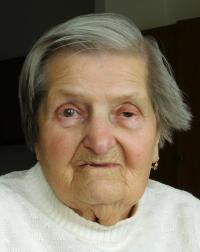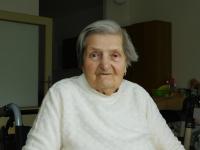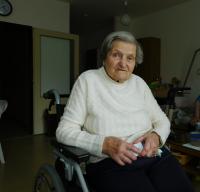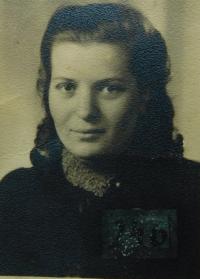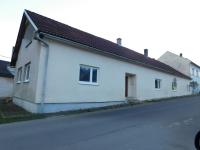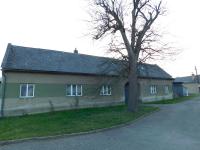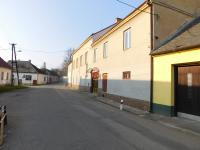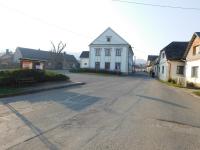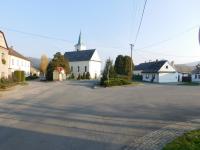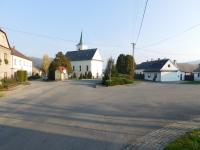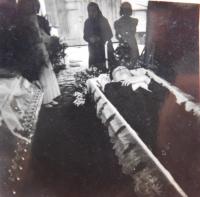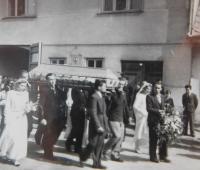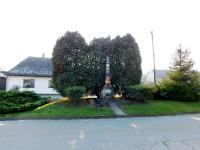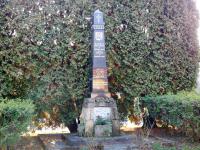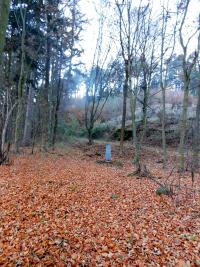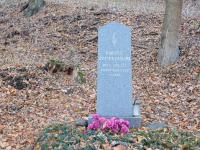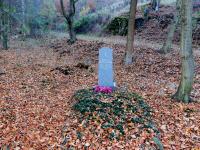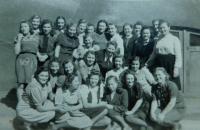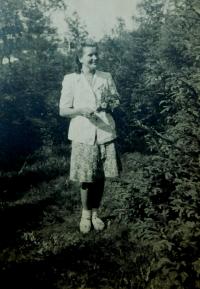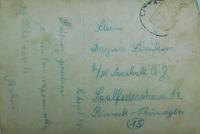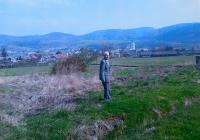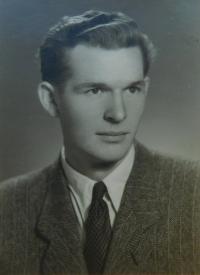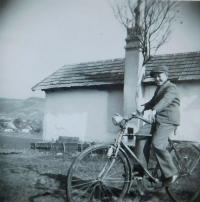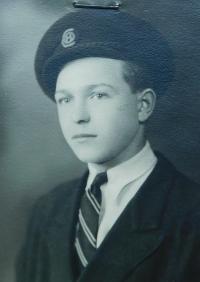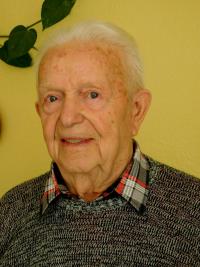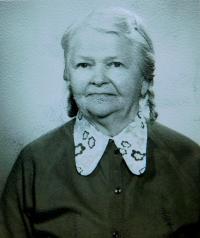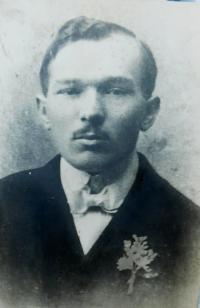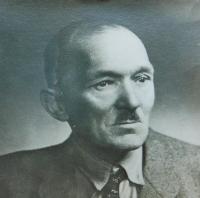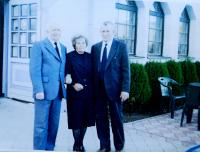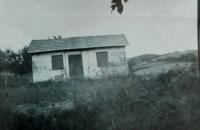Love of my life as a result of forced labour
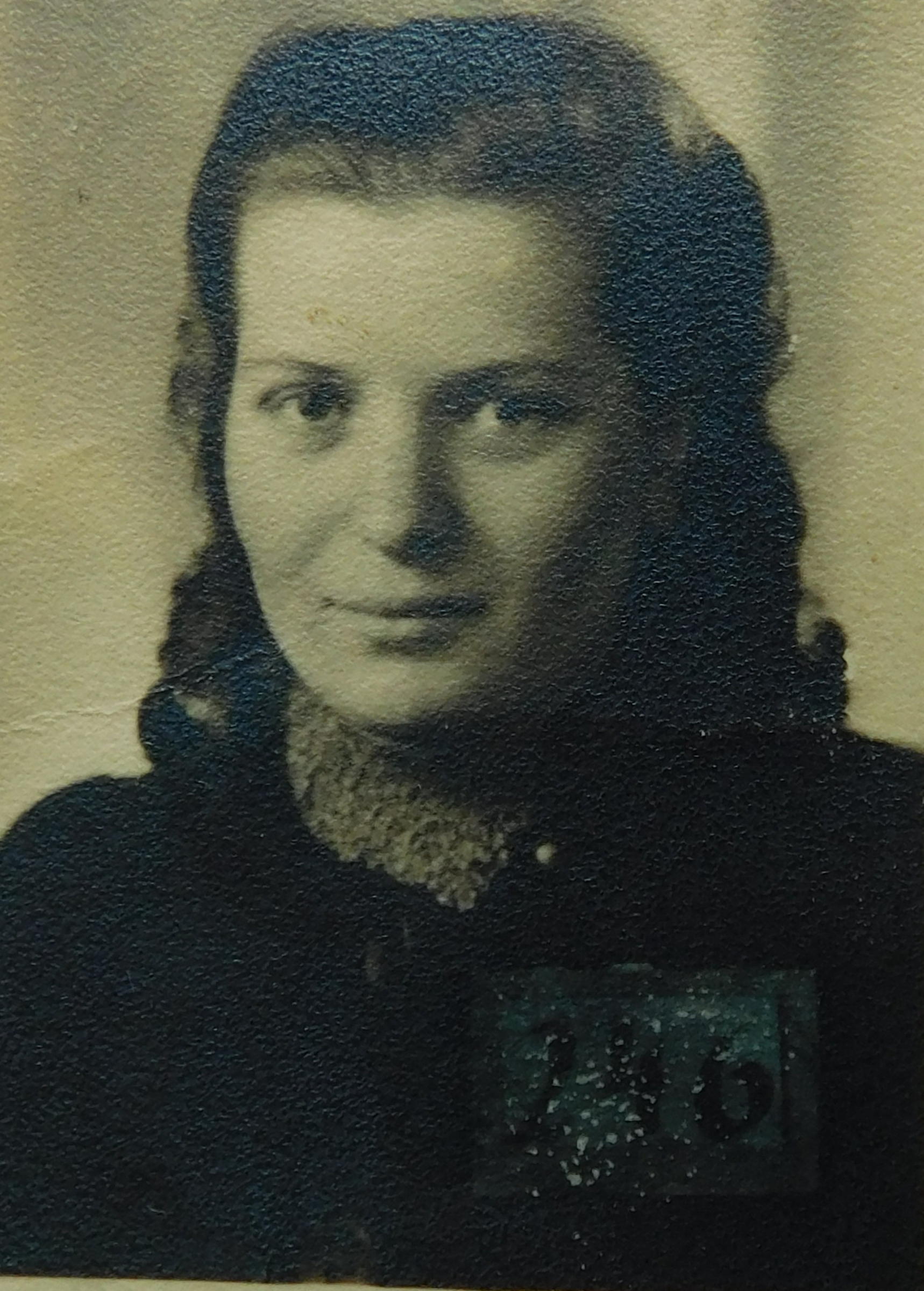
Download image
Dagmar Srovnalová, née Šimková, was born on the 8th of August 1924 in the town of Parkan (Párkány in Hungarian, Štúrovo since 1948), southern Slovakia. Sometime around 1925 the family moved to the father’s hometown of Vranová Lhota, located in the valley by the river Třebůvka, in Drahanská vysočina. The family had no money to build a house and so in accordance with the Act on Local Right to Housing at the time it was the town that had to provide a place of residence for them. They lived at the edge of the town in a building formerly used for processing plants for textile production which they sometimes shared with people who wandered through the village. Around 1929 the house burnt down, the village had a train wagon transported to the family who then used clay from the fields for walls and made it cosier. In 1938 Dagmar went to her relatives living in Mužla, southern Slovakia. She was supposed to learn to be a dressmaker there but she ended up only staying for a short while. This was because after the Vienna Arbiter in November of that year occupied southern Slovakia and both Dagmar and her relatives had to immediately leave the area. She worked as a nanny and general helper around houses. At the beginning of 1944 she was forced to go to work as someone born in 1924. She worked in the town of Pößneck in a factory making aeroplane engines, at the same table as a man her age named Josef Srovnal. They fell in love with each other and spent all their free time together. In early November 1944 they were both transported to Brno where they started working for a company called Klöckner-Deutz-Motoren AG. In March 1945 Dagmar fell sick and the doctor sent her to her hometown of Vranová Lhota to get better. A day before the war ended she witnessed the Germans almost shooting her father and youngest brother to death, along with all the other men in the village. They survived but three innocent men did pay with their lives for the life of one German soldier. After the war the family moved to Velká Kraš where Josef Srovnal joined Dagmar later. In June 1946 they got married and one year later their first daughter Dagmar was born, later followed by daughters Eva and Vlasta. Dagmar described her marriage as a beautiful one, ended only with her husband’s death in 1998.
